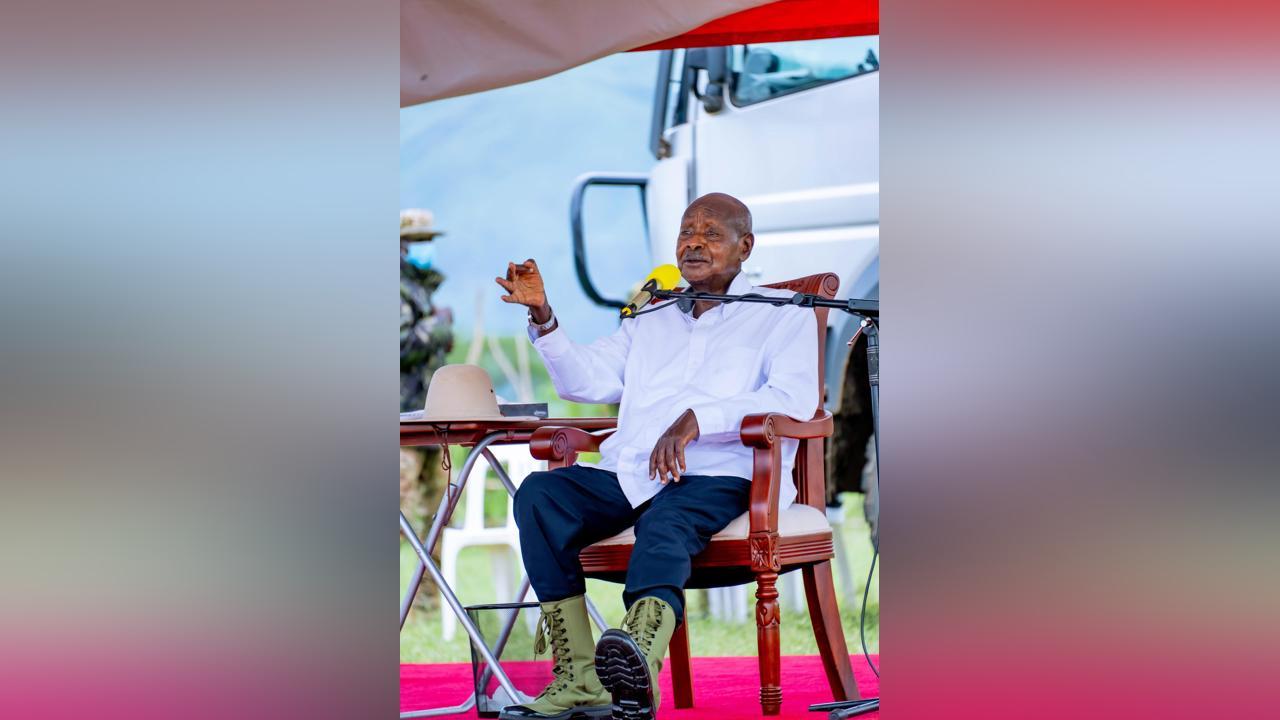Africa-Press – Uganda. As Uganda approaches the 2026 general elections, the ruling National Resistance Movement (NRM) is coming under increasing scrutiny over its internal democratic processes — or lack thereof.
At the heart of the controversy is a growing perception that the party’s Central Executive Committee (CEC), rather than its members or primary elections, holds the true power in determining who carries the party flag.
The latest uproar follows declarations from senior NRM officials affirming that CEC has the final authority on all flag bearer decisions, regardless of who wins the primaries.
The party’s Secretary-General, along with its Director of Communications Emmanuel Dombo, have repeatedly emphasized CEC’s “unlimited power” to either grant, withhold, or revoke tickets depending on “prevailing circumstances.”
According to Dombo, no one who has “concocted” a win in the primaries will be allowed to carry the NRM flag, even if they pass through the tribunal.
The committee, he insists, reserves the right to override outcomes in the interest of integrity.
“The party flag belongs to the CEC,” he declared in a recent interview.
“If anomalies are found and investigations conducted, the findings of CEC override any decision made anywhere.”
A Blow to Party Democracy?
While the official line presents this policy as a safeguard against electoral malpractice, critics see it as a troubling erosion of internal democracy.
With primaries concluded and a tribunal already in place to address disputes, the idea that a single unelected organ can override both outcomes and mechanisms has sparked alarm within the party and beyond.
“The first pillar of democracy in NRM is just for show,” says Professor Rogers Barigayomwe, a political scientist at Makerere University.
“The party has long moved in a direction that prioritizes top-down control. The interests of CEC and top officials supersede any day.”
That view is echoed by Reverend Feta, a longtime observer of governance in Uganda.
“Democracy in NRM was eroded long before this,” he said. “What we’re seeing now is just the formalization of what has always existed — a system where authority is concentrated, not delegated.”
The NRM’s defenders argue that the party must safeguard its image and prevent controversial candidates from tarnishing its brand.
Yet critics say this justification is dangerously vague. Terms like “prevailing circumstances” and “concocted wins” allow for wide interpretation, leaving the door open to selective enforcement and political manipulation.
Even within the party ranks, there is unease. Some aspiring candidates argue that if the CEC can simply dismiss primary outcomes, the entire process becomes performative — a veneer of democracy masking elite control.
Unpacking ‘CEC Hegemony’
At the center of this storm is a fundamental question: Who does the NRM flag truly belong to — the voters, or the Central Executive Committee?
The party’s constitution grants CEC wide-ranging powers, including the authority to vet candidates and make final decisions on flag bearers.
But in previous election cycles, these powers were often used sparingly, with deference given to primary results. This election cycle, however, appears to mark a sharp pivot toward centralized control.
Dombo has been unapologetic.
“Even if misconduct is found in the tribunal, CEC can resolve appropriately,” he said, suggesting that the committee not only overrides the grassroots vote but can also overrule the tribunal — an already powerful body designed to ensure fairness within the primaries.
The implications are stark. If a candidate wins a primary, survives tribunal challenges, but is still blocked by CEC, what legitimacy does that process hold?
And if no appeal can override CEC’s decision, what incentive remains for grassroots mobilization or fair competition?
Analysts warn that this shift may backfire.
“This level of control may ensure loyalty, but it also breeds disillusionment,” says Barigayomwe. “You can’t claim to be a democratic party while silencing the will of your members.”
Critics also note the potential conflict of interest within CEC itself, which is dominated by long-serving political figures, many of whom are also active or former candidates.
This raises concerns about internal bias and the use of party structures to entrench personal or factional power.
The NRM’s insistence that CEC can “choose not to field a flag bearer” if it deems necessary further complicates matters.
This clause gives CEC the power not only to override, but to erase candidacies entirely — potentially leaving constituencies unrepresented by the party.
Looking Ahead to 2026
As the 2026 elections draw near, the internal contradictions within the NRM are becoming harder to ignore. On one hand, the party touts its mass membership, elaborate primary elections, and grassroots networks.
On the other, it grants absolute authority to a central organ whose decisions are beyond challenge.
The situation has triggered what many are now calling the “CEC hegemony debate” — a growing conversation about whether the party is moving toward internal authoritarianism, even while participating in a national democratic framework.
For party loyalists, the decision-making power of CEC is necessary to guard against infiltration, fraud, and manipulation.
For reformists and outsiders, it reflects a deeper rot in the NRM’s political culture — one that views top-down control as the norm, and participatory politics as a nuisance.
The broader concern, of course, is not just about the NRM. As Uganda’s dominant political force, what the ruling party does internally often shapes the national democratic landscape.
If flag bearers are appointed rather than elected, and if internal checks are discarded in favor of CEC fiat, then Uganda’s democracy suffers as a whole.
The coming weeks will determine whether the backlash forces any change in party policy, or whether — as critics fear — the 2026 elections will be defined not by the will of voters, but by the decisions of a small, powerful circle at the top.
Either way, the question persists: Is the NRM’s Central Executive Committee safeguarding the party’s values — or subverting its democracy?
Source: Nilepost News
For More News And Analysis About Uganda Follow Africa-Press






